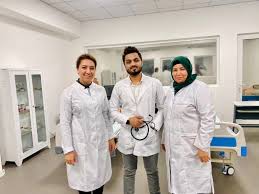Corruption risks in the activities of governor’s , mayor’s offices, ministries and departments, as well as enterprises with a state stake of more than 50% will be identified and assessed as part of the E-Anti-Corruption digital project. Risk data will be maintained on the interdepartmental platform E-Anticor.uz. This is stipulated by the President’s May 11 decree.
The E-Anti-Corruption project is scheduled to be fully launched on September 1. Internal anti-corruption control units of government agencies will assess corruption risks on a scale from low to high based on the risk assessment methodology (to be approved by the Anti-Corruption Agency and the Ministry of Justice). Based on the identified risks, actions will be taken to eliminate them. An external risk assessment is also possible.
The decree has fixed the publication of an open electronic register of relations subject to corruption. It will be conducted by the Anti-Corruption Agency. The decree has not established requirements for the content of the register.
In the work with personnel, it was instructed to reduce bureaucratic barriers, the human factor and corruption risks due to the digitalization of personnel records management, archives and information about vacancies, staffing, positions and employees, competitions and job applications.
The decree has approved a program of measures to eliminate relations prone to corruption. In particular, the president instructed to:
- digitalize the definition of conflicts of interest and corruption factors during tenders, competitions and introduce compliance control in the public procurement process - by September;
- introduce disclosure of information on construction and installation work in budgetary organizations and online acceptance of citizens' appeals in the Shaffof Qurilish system - by August;
- develop a transparent mechanism for inventorying inventory items and removing them from the balance sheet of government agencies - by August;
- ensure the transparency of conducting exams for admission to universities and final state attestation exams - until December;
- conduct an inventory and review of benefits provided for admission to universities and develop a single document with an exhaustive list of benefits and establish a transparent procedure for their provision - by December;
- introduce an electronic system for providing students with dormitories and accommodation - by August;
- carry out digitalization of transfer and restoration of studies of university students - by August;
- ensure the openness of issuing referrals to state sanatoriums and recreation areas for employees of enterprises and organizations;
- introduction of an electronic procedure for placing a ban on property and vehicles and its removal, creating the possibility of online checking the presence or absence of a ban - until June;
- conduct an inventory of existing bus stops and determine the legal status of the land plots on which they are located, and create a transparent mechanism for issuing permits for placing business objects on them, and more.















